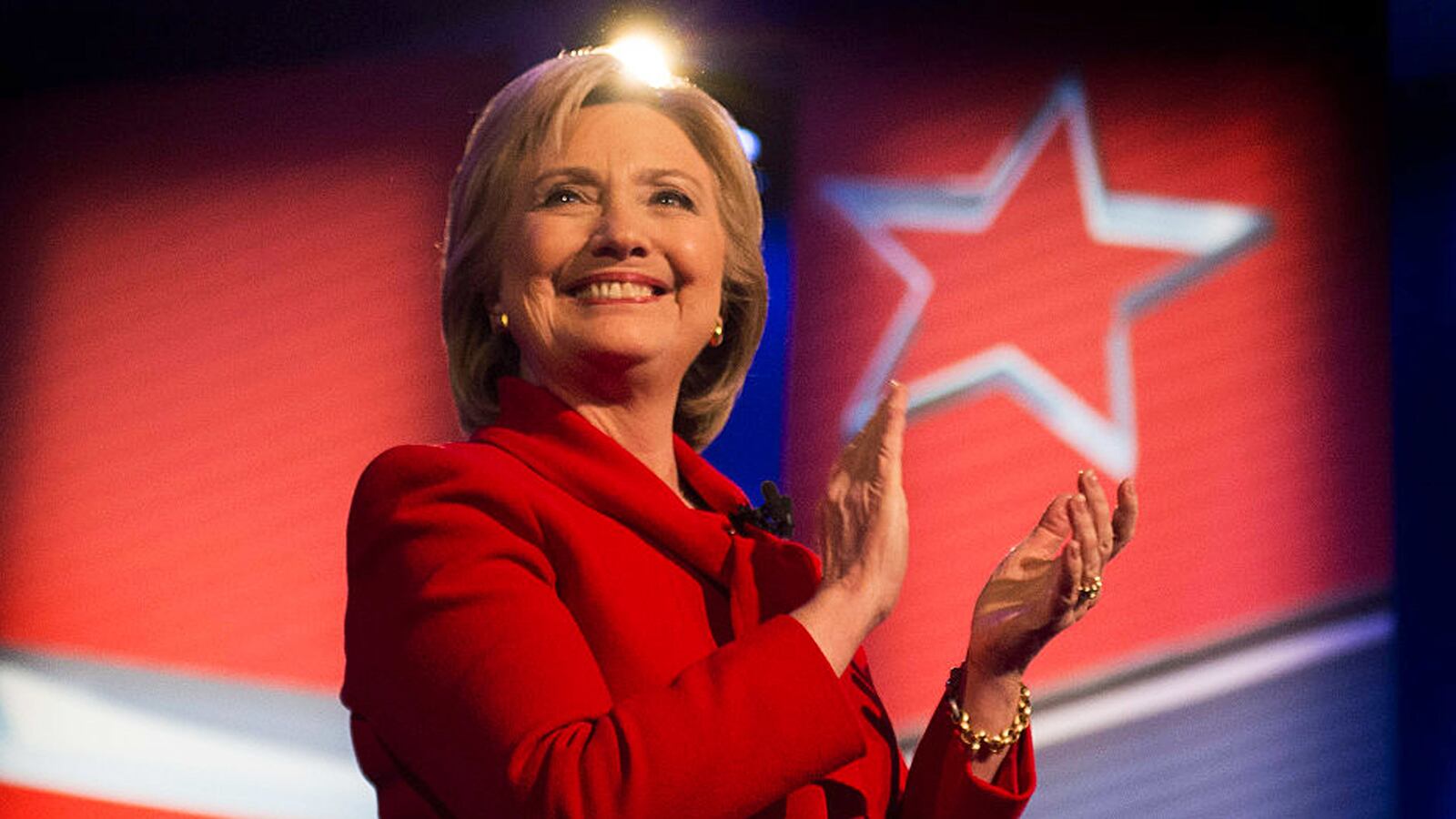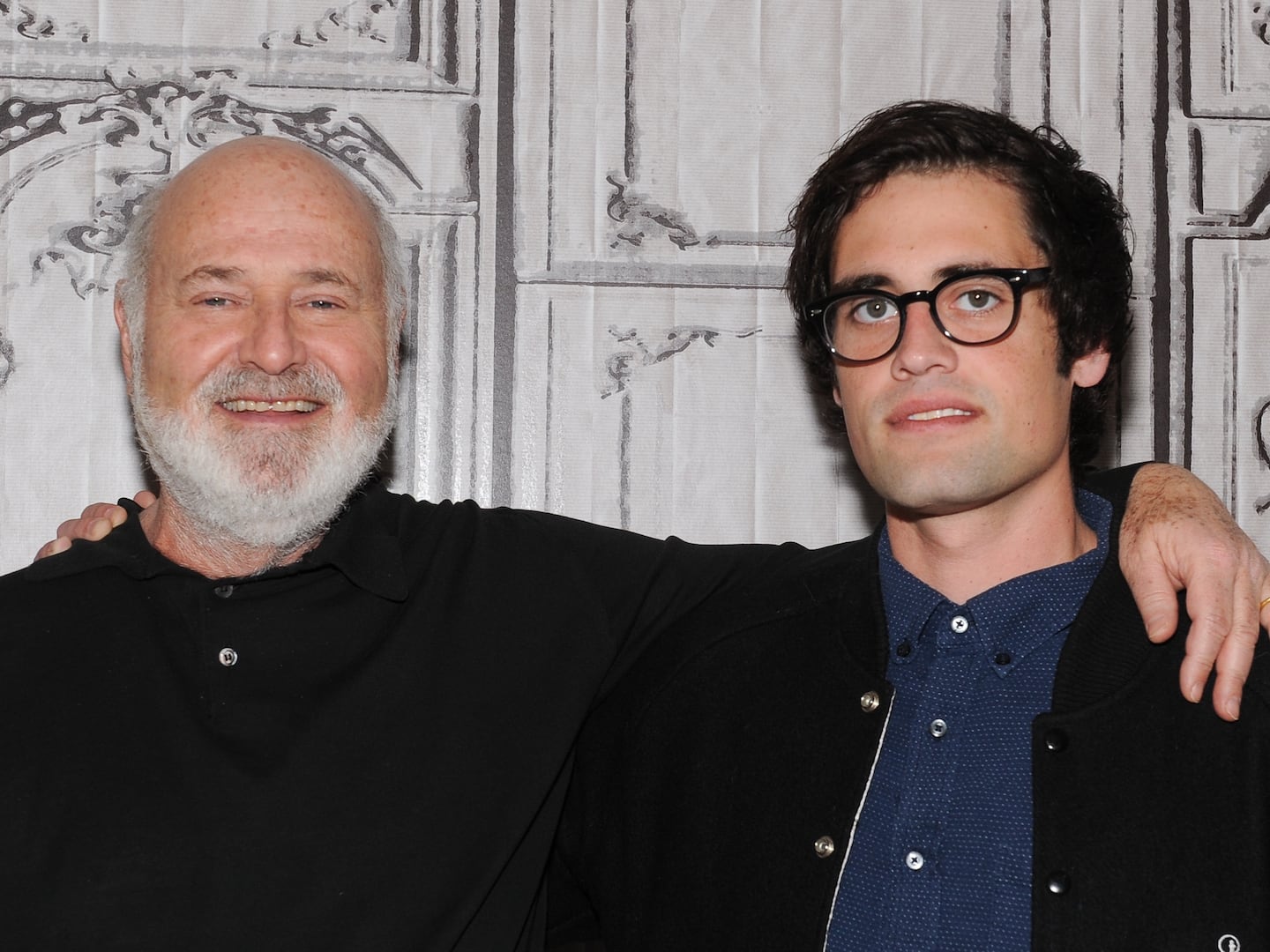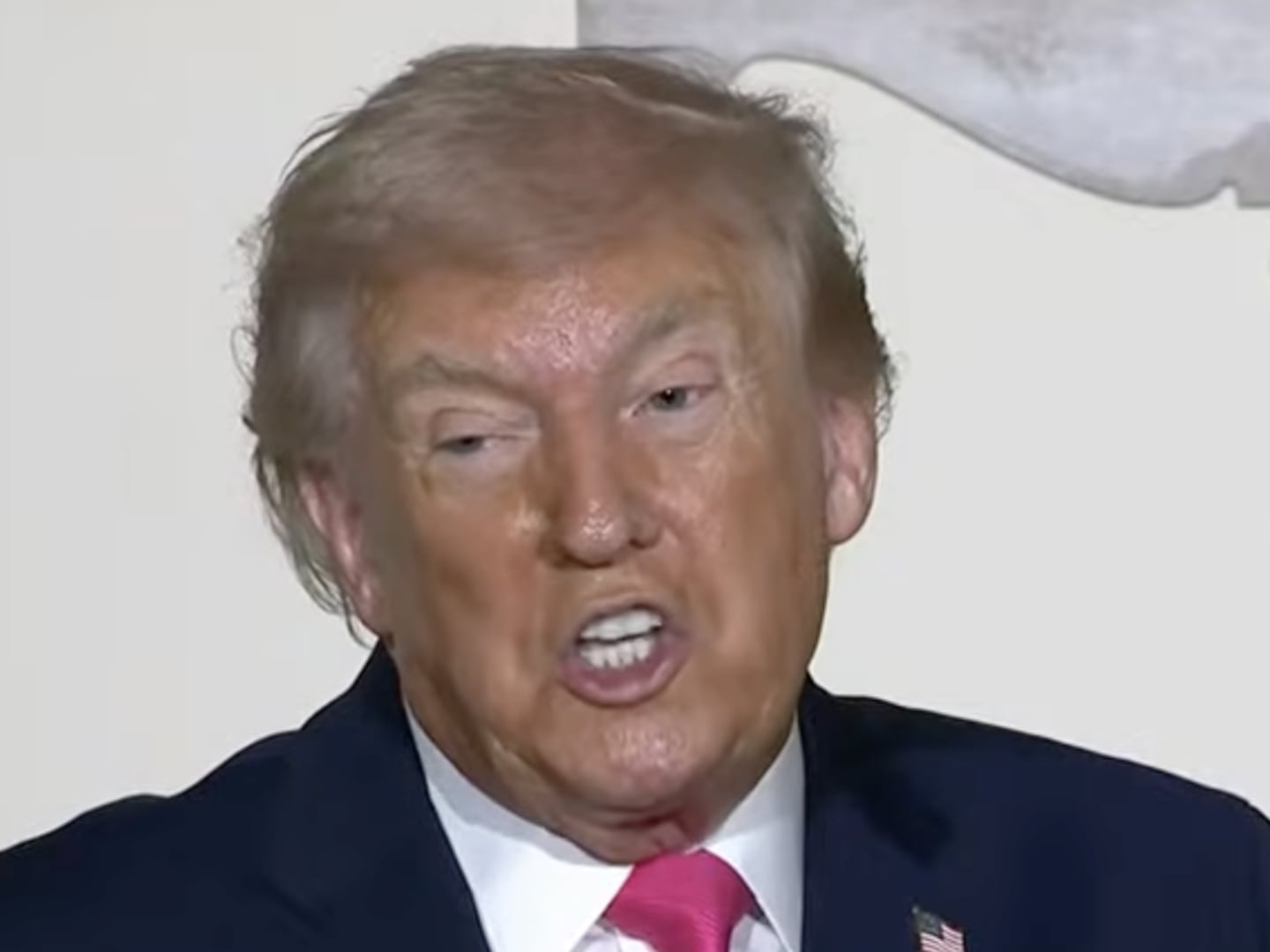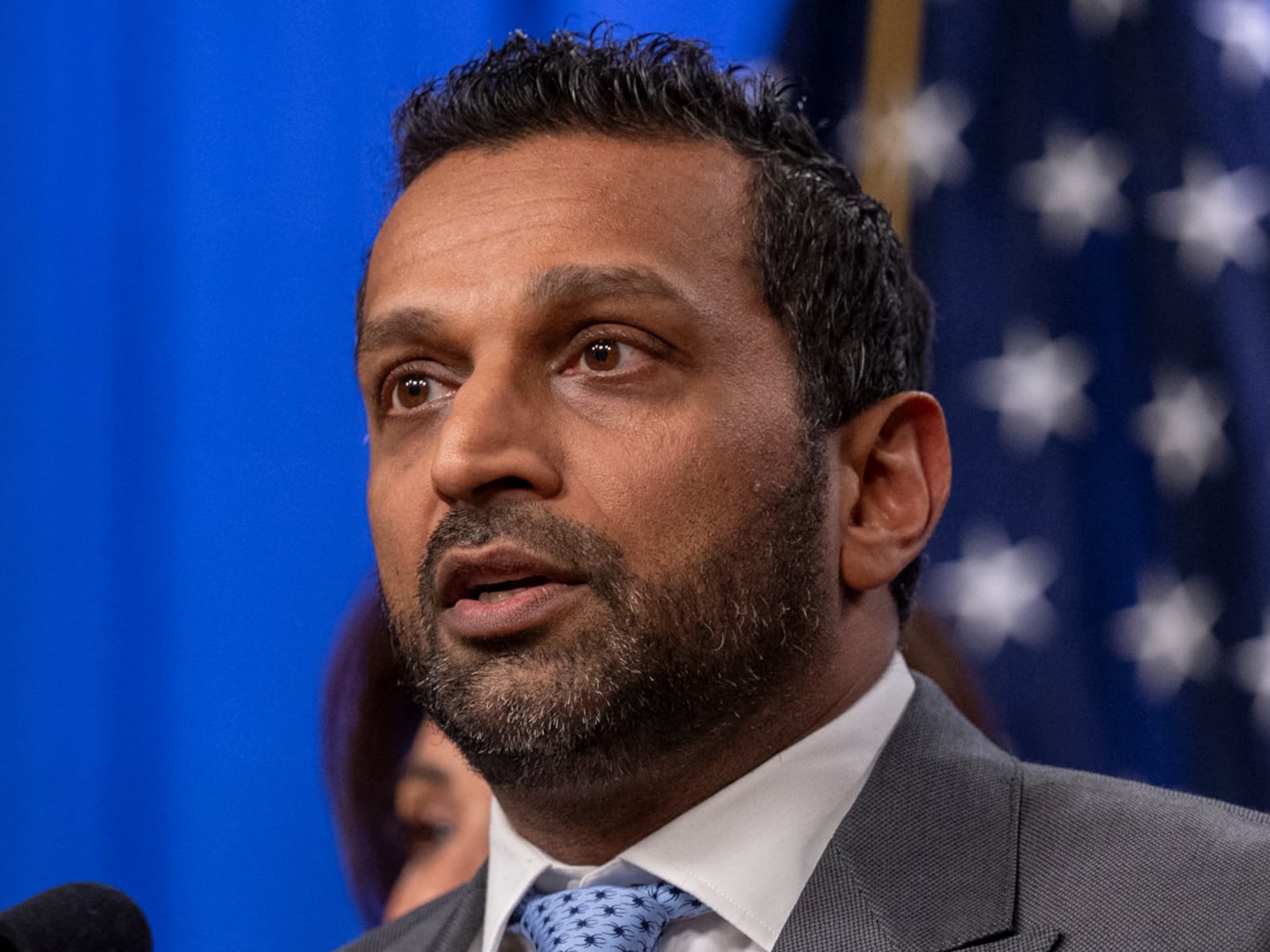Everybody’s kvetching at Hillary over her closing argument, because a) everybody kvetches at Hillary and b) everybody kvetches over closing arguments. They see five seconds of a clip on cable and frog-march their way to the most drastic conclusions. It’s too negative! It’s too positive! Not enough this! Too much that!
Oh, please. Give it a rest. She seems to know what she’s doing. She’s been ahead virtually the entire race, and most indications are she’s going to finish ahead and wake up Wednesday morning as the president-elect. If that happens, she will must have done something right.
That’s another thing that I find so trite and media herd-like. But she’s a bad candidate! But she generates no enthusiasm! You seen any of these crowds lately? They look pretty enthusiastic to me. So do Trump’s of course, but the last Washington Post poll found Clinton supporters to be more enthusiastic than Trump’s. Her lead there’s just a percentage point, 52-51, but her number has climbed several points in the past week, while Trump’s had declined.
And those early voting lines—one had to be kept open until 10 pm Friday night in a Latino neighborhood in Las Vegas—may be mostly about fear of Trump. But rest assured they’re with her, as they were back in February when Clinton beat Bernie Sanders in the Nevada caucus, dealing his campaign a devastating blow (you’ll recall that he hadn’t even prepared a concession speech that evening).
Clinton’s closing argument, to the extent these things are relevant, seems fine to me. There’s some positive in there, about her economic plans and the middle class and about how she will “protect America,” and of course there’s plenty of negative about Trump. She’s appeared with Alicia Machado, the ex-Miss Universe whom Clinton made famous in that first debate, and she’s run ads attacking Trump’s appalling treatment of women, and she’s made fun of him too. “I mean, really,” Clinton said incredulously, “can we just stop for a minute and reflect on the absurdity of Donald Trump finding fault with Miss Universe?” (If Clinton weighed the female equivalent of what Trump weighs, with his admittedly well-hidden corpulence, there is no chance she could have been taken seriously by the arbiters of such things as a presidential candidate, but that’s another column.)
Sure, I’d like a more uplifting message. In an ideal world I’d like her to talk about how she’s going to unite the country. But she’s not going to unite the country. We know that. Oh maybe, if she wins a second term in 2020 and Rush Limbaugh retires and Alex Jones loses the power of speech and the Republicans have taken a beating in even the by-elections and the GOP has finally split in two, she’ll be able to find some quasi-moderate Republicans to do a little business with her. But she’s not uniting the country, certainly before 2018, when Republicans know they’re likely to make big gains in the House and Senate if they can just persuade their gullible marks that everything is Hillary’s fault.
So it would be phony for her to say she will unite the country. The best she can do is galvanize her half of the country and get them ready for battle. And that’s what she’s doing. Because battle it will be—not from Jan. 20, but from Nov. 9.
Here’s another truth that is little discussed in the media, because I think most political journalists don’t have much grasp of this reality. In these last days, message matters a lot less than mechanics. That is: When Clinton goes to a city to give a speech, Orlando or Charlotte or Detroit or Las Vegas or wherever, the content of the speech she gives is what the media focus on. But it’s hardly the most important thing that happens when she hits town.
What happens is that she sees people. She sees, yes, fundraisers, the local money bags. But she sees local party activists and local black preachers and United Federation of Teachers phone-bankers and who knows who else. They get invited to come backstage and meet her.
Also, local Democrats and union leaders and others organize caravans to the event, and in those caravans they sign people up to make calls or knock on doors. You may have seen situations in the past where a candidate, Democrat or Republican, showed up in a place and in the next poll gained two points in that place, and you may have wondered why; just because of a speech? But it’s not because of a speech. It’s because the appearance of the candidate activated and engaged hundreds of people, who then reached out to thousands, who amounted to two points.
Is the same thing happening on the Trump side? This is the thing about this election. We don’t know. He has no roots in any local GOP operation. Not even Manhattan’s! Some of them love him, sure. But some of them don’t. And the rich Republicans around the country are very divided on Trump. Some wouldn’t go to a Trump fundraiser if you held a gun to their head. So I would tend to doubt that a Trump appearance in Columbus has the same knock-on effect that a Clinton appearance there does.
That’s the real closing argument, folks. It happens behind closed doors, out of the view of people like me, though I do know enough about how this all works to know what I just told you.
Now, I should say that as I write there’s a, what, 25 to 35 percent chance that Trump wins. Maybe people like me are underestimating the white working-class turnout, although here, too, we have numbers that tell us that there’s little reason to think it will materialize (see David Wasserman’s work on this point.) But clearly, James Comey hurt Clinton, as intended, and he gave Trump a narrative to ride through Tuesday. Millions have been convinced that Clinton is damaged goods, and there is no doubt that it’s bad for her that the water-cooler chat of the campaign’s final days is more focused on her flaws than his.
But again, this is the error the media so often make. Narrative and water-cooler chat probably aren’t as important as mechanics—identifying potential voters and getting them to vote. Democracy’s about votes, not news cycles. Thank God.






